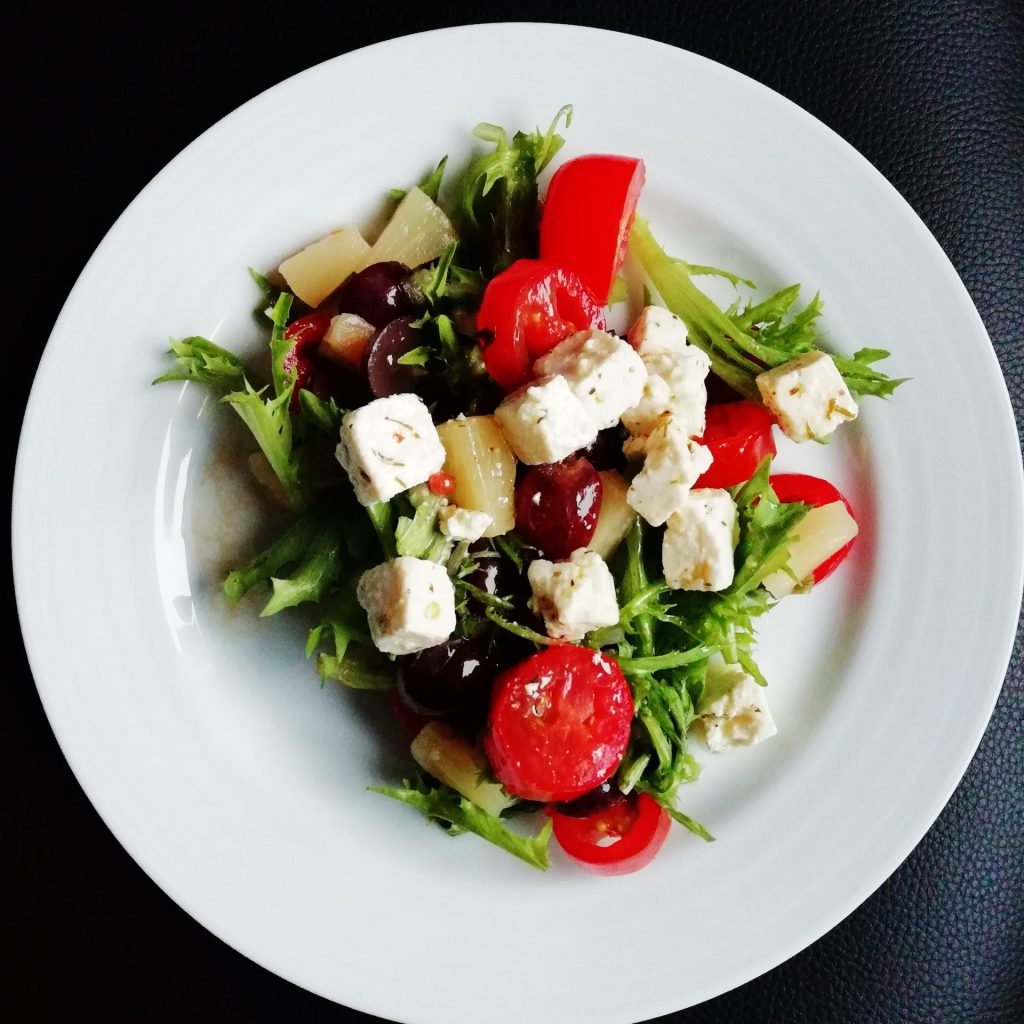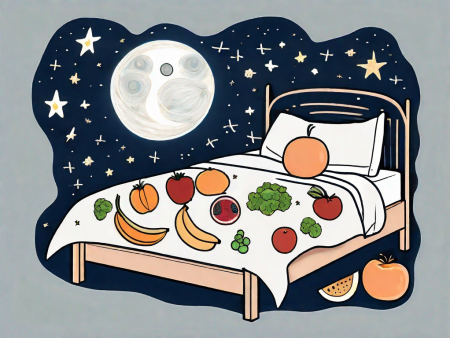Discover the potential benefits of adopting a gluten-free diet for managing anxiety.
Exploring the Benefits of a Gluten-Free Diet for Anxiety
Say goodbye to gluten and hello to a calmer state of mind! In this article, we will dive deep into the fascinating world of gluten-free diets and their potential benefits for anxiety. So grab your reading glasses and get ready to embark on a gluten-free adventure that will leave you feeling healthier and happier than ever before!
Understanding Anxiety: A Brief Overview
Anxiety is like that pesky little voice in your head that just won’t quit. It’s the feeling of unease, worry, and stress that can turn the simplest tasks into daunting challenges. But fear not! By better understanding anxiety, we can take steps towards managing it effectively.
Did you know that anxiety and diet are intertwined like a funky dance routine? It’s true! What you put on your plate can have a surprising impact on your mental health and well-being. That’s where a gluten-free diet comes into play.

The Connection Between Anxiety and Diet
Picture this: you’re wolfing down a carb-loaded meal, and suddenly, your heart starts racing, your palms get sweaty, and your mind turns into a swirling tornado of worry. It’s like anxiety on steroids, right? Well, studies have shown that there might be a link between what we eat and how we feel.
When it comes to anxiety, some researchers believe that certain food components, including gluten, might trigger or exacerbate symptoms. While it’s not a one-size-fits-all situation, it might be worth considering for those seeking relief from the anxiety beast.
The Role of Gluten in the Body
Oh, gluten, you sneaky little devil! Found in wheat, barley, and rye, gluten is a protein that gives bread that oh-so-delicious chewiness. However, for some individuals, gluten can wreak havoc on the body, causing digestive issues, brain fog, and yes, even anxiety.
Gluten in the body can stimulate the production of inflammation-promoting substances, which can trigger an immune response. This inflammation party can mess with our brain chemistry, leading to all sorts of not-so-pleasant symptoms, including anxiety.
But what exactly happens when gluten enters the body? Well, it all starts in the gut. When gluten is ingested, it interacts with the lining of the small intestine, causing an immune reaction. This immune reaction can damage the villi, tiny finger-like projections that line the small intestine and help with nutrient absorption.
When the villi become damaged, the body struggles to absorb nutrients properly. This can lead to deficiencies in essential vitamins and minerals, which can further contribute to anxiety and other mental health issues. It’s like a domino effect, with gluten playing a starring role in the chaos.
But that’s not all! Gluten can also disrupt the delicate balance of gut bacteria, known as the microbiome. The microbiome plays a crucial role in our overall health, including our mental well-being. When the microbiome is thrown off balance, it can impact neurotransmitter production and communication, potentially leading to anxiety and other mood disorders.
So, it’s not just a matter of gluten causing digestive issues; it can have far-reaching effects on our mental health as well. That’s why many individuals with anxiety choose to follow a gluten-free diet in an attempt to alleviate their symptoms.
But before you jump on the gluten-free bandwagon, it’s important to note that not everyone with anxiety will benefit from eliminating gluten. It’s a personal journey, and what works for one person may not work for another. It’s always best to consult with a healthcare professional or registered dietitian before making any drastic changes to your diet.
In conclusion, the connection between anxiety and diet is a complex and fascinating topic. While gluten may play a role in triggering or exacerbating anxiety symptoms for some individuals, it’s not a guaranteed solution for everyone. Understanding the relationship between what we eat and how we feel can empower us to make informed choices that support our mental well-being.
The Science Behind Gluten-Free Diets
Now that we’ve established the connection between gluten and anxiety, let’s dive into the science behind gluten-free diets. This is where things get really interesting!
Gluten-free diets have gained significant popularity in recent years, not only among individuals with gluten-related disorders but also among those seeking a healthier lifestyle. But what exactly happens in our bodies when we eliminate gluten? Let’s explore.
The Impact of Gluten on the Brain and Mood
Imagine your brain as a stylish hat. Now picture gluten as a pesky moth nibbling away at that hat, causing it to become wonky and uncomfortable. No one likes a wonky hat, right? Well, the same goes for our brains!
Research suggests that gluten can disrupt the delicate balance of neurotransmitters in our brain, affecting our mood and making us more prone to anxiety. The consumption of gluten can trigger an inflammatory response in susceptible individuals, leading to a cascade of events that may contribute to mood disorders.
Furthermore, studies have shown that gluten can increase the production of zonulin, a protein that modulates the permeability of our intestinal walls. This increased permeability, commonly known as “leaky gut,” allows substances to enter the bloodstream that would normally be excluded. These substances can potentially reach the brain and trigger an immune response, further exacerbating mood disturbances.
By eliminating gluten, we can potentially restore the harmony in our mental fashion show. Our brains can regain their composure, allowing us to navigate through life with a clearer and more focused mind.
Nutritional Aspects of a Gluten-Free Diet
One might wonder, “But if I go gluten-free, won’t I miss out on all the good stuff?” Fear not, gluten-free warriors, for there are plenty of delicious and nutritious alternatives out there!
A gluten-free diet can still provide all the essential nutrients your body needs. Think wholesome fruits, vegetables, lean proteins, and gluten-free grains like quinoa and rice. These alternatives not only offer a wide range of vitamins and minerals but also provide dietary fiber, which is essential for maintaining a healthy digestive system.
Moreover, the gluten-free market has expanded significantly in recent years, offering a plethora of gluten-free products that cater to various tastes and preferences. From gluten-free bread and pasta to cookies and cakes, there is no shortage of options to satisfy your cravings.
It’s important to note that while gluten-free alternatives can be a great addition to your diet, it’s essential to maintain a balanced and varied eating plan. Incorporating a variety of whole foods and focusing on nutrient-dense options will ensure that you’re getting all the necessary nutrients your body needs.
So fear not, gluten-free warriors! With a bit of creativity, your taste buds will be doing a happy dance in no time, all while nourishing your body and supporting your overall well-being.
Transitioning to a Gluten-Free Lifestyle
Ready to take the gluten-free plunge? Let’s explore how to make this transition a smooth and enjoyable one!
Transitioning to a gluten-free lifestyle can seem daunting at first, but with the right knowledge and resources, it can be a rewarding and delicious journey. By eliminating gluten from your diet, you may experience improved digestion, increased energy levels, and a reduction in symptoms if you have gluten sensitivity or celiac disease.

Identifying Gluten in Your Diet
Start by playing a little game of hide-and-seek with gluten. Check food labels, learn the secret code words for gluten (wheat, barley, and rye), and familiarize yourself with unexpected sources of gluten – like that sneaky little devil hiding in soy sauce.
Gluten can be found in a wide range of products, from bread and pasta to sauces, dressings, and even some medications. It’s important to read labels carefully and be aware of cross-contamination risks, especially when dining out or cooking in a shared kitchen.
Armed with this knowledge, you’ll become a gluten detective, outsmarting gluten at every meal and snack time!
But don’t worry, there are plenty of delicious gluten-free options available to satisfy your cravings. Explore the world of gluten-free grains like quinoa, rice, and buckwheat, which can be used as alternatives to wheat-based products. Get creative in the kitchen and experiment with gluten-free flours like almond, coconut, or tapioca to make your favorite baked goods.
Gluten-Free Alternatives for Your Favorite Foods
Breaking up with gluten doesn’t mean saying goodbye to all the delicious goodies in life. Oh no! There’s a whole world of gluten-free alternatives waiting to delight your taste buds.
Craving a slice of pizza? Try a gluten-free pizza crust made with a blend of gluten-free flours and topped with your favorite veggies and cheese. Want to enjoy a sandwich? Opt for gluten-free bread or wrap made with nutritious ingredients like quinoa or chickpea flour.
From fluffy gluten-free bread to crispy pizza crusts made with alternative flours, the possibilities are endless. So go ahead, indulge in your favorite foods while keeping gluten at bay!
Transitioning to a gluten-free lifestyle is not just about what you can’t eat, but also about discovering new flavors and ingredients. Explore the world of naturally gluten-free foods like fruits, vegetables, lean proteins, and dairy products. Experiment with herbs, spices, and different cooking techniques to enhance the taste of your meals.
Remember, transitioning to a gluten-free lifestyle is a personal journey, and it may take time to adjust. Be patient with yourself, seek support from friends, family, or online communities, and celebrate small victories along the way. Embrace the opportunity to explore new foods, flavors, and recipes, and you’ll soon discover that a gluten-free lifestyle can be both delicious and fulfilling.
The Potential Benefits of a Gluten-Free Diet for Anxiety
We’ve reached the juicy part! Let’s uncover how a gluten-free diet may help tame the anxiety beast and bring more peace to your life.
Reduced Inflammation and Anxiety Symptoms
Remember that inflammation party we talked about earlier? Well, eliminating gluten from your diet might help kick those inflammation-promoting substances to the curb, reducing the overall inflammation in your body. And less inflammation means fewer anxious thoughts and more calm vibes.
By nourishing your body with gluten-free goodness, you might notice that your anxiety symptoms start to ease, allowing you to conquer the world one worry-free step at a time.
Improved Gut Health and Mental Well-being
Did you know that our gut is like our second brain? It’s true! The trillions of bacteria residing in our digestive system play a crucial role in our mental and emotional well-being. And guess what? Gluten can disrupt that delicate balance, causing chaos in our gut and subsequently, in our mind.
By opting for a gluten-free diet, you’re giving your gut a break from potential troublemakers, allowing those friendly bacteria to flourish. A happy gut equals a happy mind, and a happy mind equals a happier, anxiety-free life!
Addressing Common Concerns About Gluten-Free Diets
Now, before you jump headfirst into the gluten-free bandwagon, let’s address some common concerns that might be swirling in your mind like questioning thoughts in a gluten-filled world.
Nutritional Deficiencies and How to Avoid Them
You might be worried that going gluten-free will result in missing out on vital nutrients. But fear not! With a well-balanced gluten-free diet, you can easily meet your nutritional needs.
Consulting with a registered dietitian or nutritionist can help ensure you’re getting all the essential vitamins, minerals, and fiber your body deserves. So, fear not, gluten-free warriors, for you can thrive on this anxiety-busting journey!
The Challenge of Dining Out Gluten-Free
Ah, the joys of dining out! But what happens when you’re faced with a menu full of gluten-filled temptations? Fear not, adventurous eaters, for many restaurants now offer gluten-free options to cater to those in the gluten-free clan. Simply ask your server for recommendations or even check out gluten-free restaurant guides online.
And if all else fails, embrace your inner MasterChef and whip up a delightful gluten-free feast right at home. Your taste buds and anxiety levels will thank you!
So there you have it, gluten-free warriors! By exploring the benefits of a gluten-free diet for anxiety, we’ve discovered a tantalizing path towards a calmer, more peaceful existence. Remember, each person’s journey is unique, so it’s essential to listen to your body and find what works best for you. So why wait? Say goodbye to gluten and hello to a life filled with healthier choices and a more serene state of mind!







